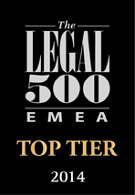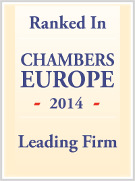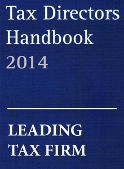
Security token offerings in Lithuania (Guidelines by the Bank of Lithuania)
The Bank of Lithuania published Guidelines on security token offerings in Lithuania.
The Bank of Lithuania (BoL) published Guidelines on security token offerings (STOs) in Lithuania, in which it shares with STOs organisers, developers, investors and other market participants its views regarding STOs legal qualification and interpretation in the light of the existing regulatory framework. (Read more about starting business in Lithuania from our previous articles)
Currently there is no STO- specific regulatory framework in Lithuanian or European Union (EU) law. This fact leads to numerous questions whether, and if so, what kind of regulation should be applied in relation to STOs.
Criteria based on economic functions of tokens should be decisive. Whereas tokens issued through STOs are considered to fall within the term of transferable securities (there is no transferable security guidelines by Bank of Lithuania) or other financial instruments, a full set of EU and national financial rules should be applicable, so as financial instruments regulation in Lithuania encloses.
Equivalence to financial instruments leads that tokens should comply with the legal financial EU and national regulation. In an effort to determine the legal status of tokens and determine possible applicability of EU and Lithuanian financial markets regulation, the careful evaluation on a case-by-case basis will be conducted.
Moreover, the BoL believes that all tokens and related activities should be subject to Anti-Money-Laundering and Counter Terrorist Financing (hereinafter – AML/CTF) regulation, so it would provide security for investing in Lithuania.
Security token offerings in Lithuania
The question whether a security token offerings in Lithuania qualifies as transferable security or other financial instrument under national transposition of MiFID II is of high importance as once it is considered as transferable security or other financial instrument relevant financial markets regulation shall apply. It is important to do research on STO regulation in Lithuania, Financial instruments regulation in Lithuania and Fintech regulation in Lithuania.
“Financial instruments” are defined in Article 3 (15) of the Law on Markets in Financial Instruments. In financial instruments regulation in Lithuania there are defined as any of the following instruments:
- transferable securities;
- money market instruments;
- securities of collective investment undertakings;
- options, futures, swaps, forward rate agreements and other derivative instruments relating to transferable securities, currencies, interest rates or yields, also allowances issue and other derivative instruments relating to allowances issue, financial indices and other instruments that may be settled in cash or physically;
- options, futures, swaps, forward rate agreements and other derivative instruments relating to commodities that must be settled in cash or may be settled in cash at the option of one of the parties (otherwise than by reason of insolvency and termination events) as well as other financial instruments indicated.
Please be informed that from tree Baltic States, only in Estonia licenses for cryptocurrency are granted (services of exchanging a virtual currency against a fiat currency and virtual currency wallet service).
This article was about security token offerings in Lithuania. Soon will be published next part about financial instruments regulation in Lithuania.
If you are interested to learn more on STOs regulation in Lithuania and FinTech regulation in Lithuania, and require licensing and setting up in Lithuania, please refer to our Baltic lawyers at info@gencs.eu








